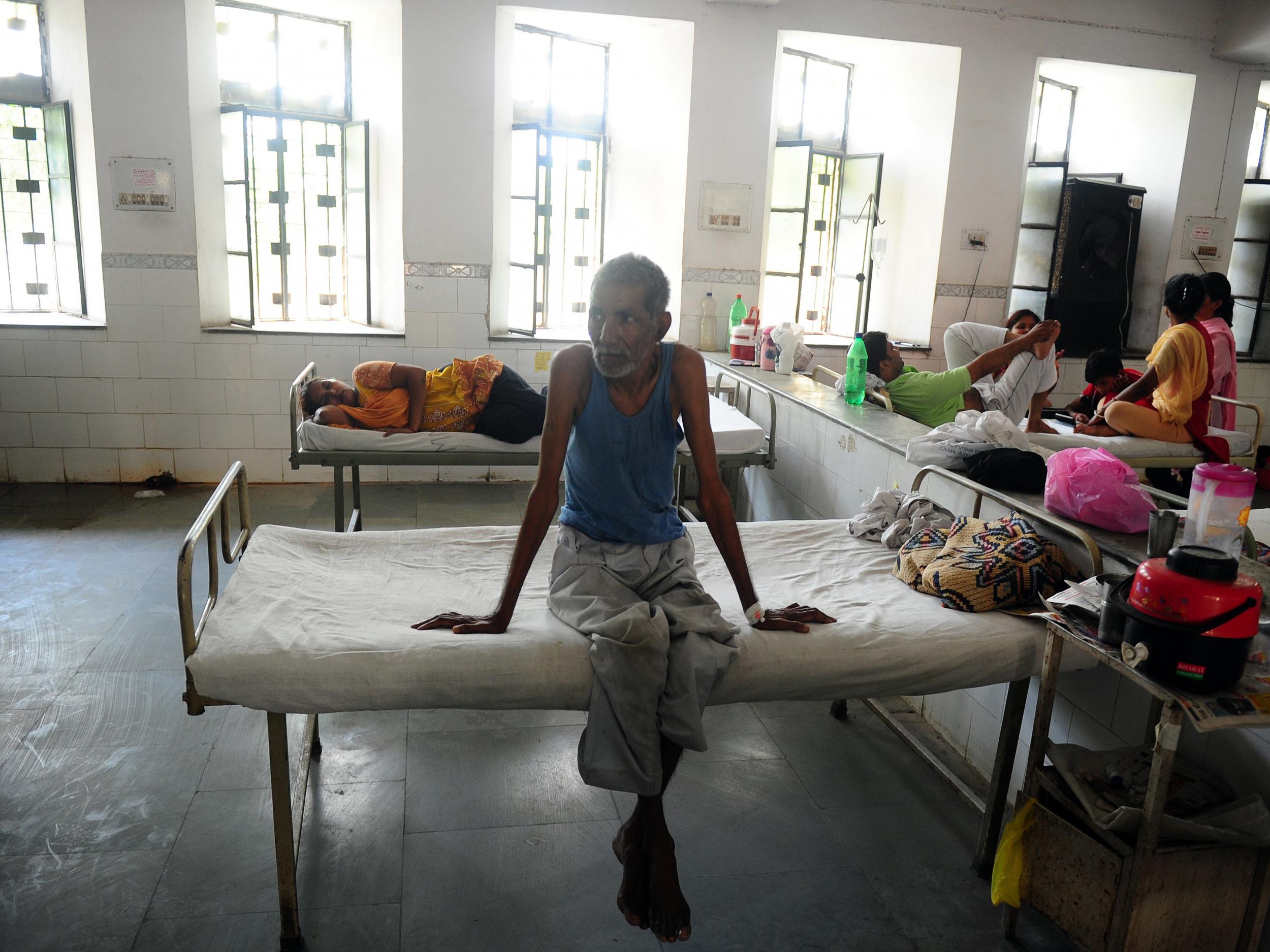Climate change needs public health campaign similar to tobacco as extreme heat threatens to overwhelm hospitals, experts warn
'It’s no longer about a polar bear a long way away, now it’s actually about a child with asthma standing next to you'

Public health campaigns comparable to those mounted against tobacco and HIV will be needed to tackle the growing threat posed by climate change, according to the authors of a major new report.
Medics and governments must urgently tackle global warming as burning fossil fuels triggers fatal heatwaves, contributes to toxic air pollution and aids in the spread of diseases, the reserahcers said.
This could mean anything from heatwave warnings at train stations to doctors fighting for climate action in an effort to address what experts have dubbed the “greatest threat to global health”.
“The role of the health profession is to help the public and help policy makers understand that it’s not just an environmental issue, it’s a critical issues for the health of our patients,” said Dr Nick Watts, executive director of The Lancet Countdown report on health and climate change.
“It’s no longer about a polar bear a long way away, now it’s actually about a child with asthma standing next to you.”
The summer saw heatwaves grip much of the northern hemisphere, with hundreds of additional deaths across the UK attributed to heat stress.
This trend is set to continue, and last year 157 million more people were exposed to heatwaves around the world than in 2000.
Hospitals worldwide must be prepared for an influx of heat-related illness, especially among older people and those suffering from heart and lung disease or diabetes.
But the report warns that heat is just one element of climate change’s health impact, with unseasonable weather responsible for diseases like cholera and dengue fever spreading into new areas.
Dr Watts said in the past the medical profession had “moved mountains” on behalf of its patients, pushing for mass vaccination programmes and anti-tobacco campaigns.
With climate change threatening to “undermine the last 50 years of gains in public health”, he said many existing warning systems and public health measures will need to be overturned.
“The danger is if you have a plan that is not fit for purpose because it assumes the climate is not changing,” he said.
In his native Australia Dr Watts said this might mean warnings against the malaria creeping into previously untouched parts of the north east, or campaigns in the UK similar to the Mayor of London Sadiq Khan's air pollution warning signs.
“It wouldn’t be unreasonable to say we are going to start doing that at bus stops and train stations – as we know that the urban elderly are among the most vulnerable to these extremes of heat,” he said.
Among the recommendations laid out in the expansive report was a commitment by the UK government to go carbon neutral by 2050 to help keep global warming below the 1.5C target recommended by leading climate scientists.

They also advocated a phase-out of petrol and diesel cars, a switch to plant-based diets and the inclusion of climate change in all medical training.
“All sectors – from policymakers, to industry leaders, to the general public – must prioritise action on climate change if we are to significantly reduce the potentially devastating impact on our planet and our health, affecting generations to come,” said Dr Howard Frumkin from the Wellcome Trust, a biomedical research charity which supported the work.
“This is the greatest threat to global health and survival for humanity of this century,” added Professor Hugh Montgomery of University College London, who also contributed to the report. “It may well be that it is far too late even now to do something about this, but we have got to act.”
Join our commenting forum
Join thought-provoking conversations, follow other Independent readers and see their replies
Comments
Bookmark popover
Removed from bookmarks